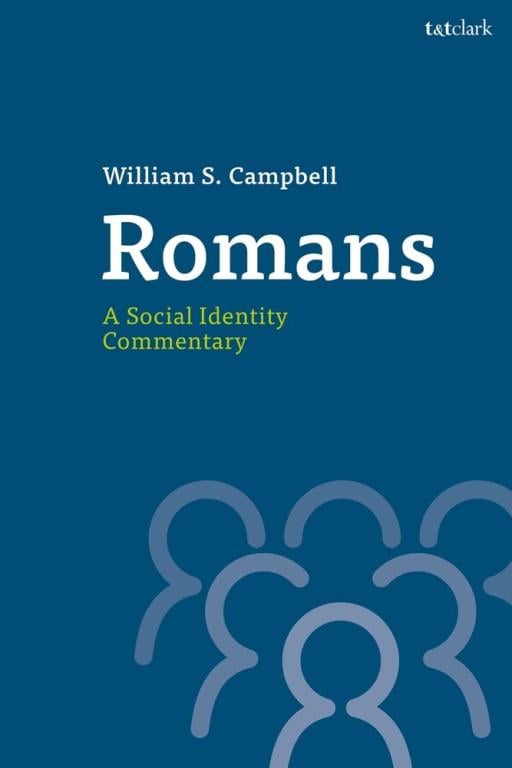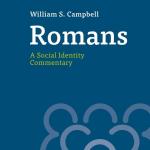Q. In a helpful summary towards the close of your book on p. 395 you say this “This identity, to include the people of Israel both prior to and after the Christ-event, must be a superordinate identity not under Christ but under the God of Israel. As each together [ i.e. Israel on the one hand and Gentile Christ followers on the other}, but differently, glorify the God of Israel, his glory will be more fully expressed…..”
Now the problem with this from my point of view is this is not Paul’s view in any of his letters, not even in Romans though I think the best case for this view can be made using Romans. My view would be that ‘being in Christ’ whether Jew or Gentile is the superordinate identity, and it will ultimately be fully manifested when Christ returns and ‘turns away the impiety of Jacob in the same manner as happened with Gentiles, namely by the mercy and grace of God through faith in Christ.” This is precisely what Paul envisions eschatologically not only in Rom. 11, but also in Phil. 2 when he says that God has given Christ the name which is above every name (namely the name by which God is called in the LXX—Kurios) such that every knee will bow, not just the Gentiles and every tongue confess whether in heaven on earth or under the earth that Christ is Lord to the glory of God the Father. This breath-taking vision is where Paul sees things heading. It is this superordinate identity that Paul is promoting when he talks about ‘being in Christ’ (a phrase used over 50 times in the capital Paulines) and it is this superordinate identity that comports with Gal. 3.28 when he says in Christ there is neither Jew nor Gentile but all are one. How would you respond to this view of the superordinate identity Paul envisions?
A. I would like to focus here on the question whether being in Christ is itself a superordinate identity. First of all, it is important to keep in mind that Paul in addressing non-Jews in Christ in Romans is clarifying specifically for them what this means. I do not deny that being in Christ has relevance for both Jews and non-Jews in Romans. However, for non-Jews being in Christ is the only way according to Paul to belong fully to the one God. This means that being in Christ is a sub-group identity under a wider umbrella – the superordinate identity as people belonging to God, that is as also God’s people. Jews, that is, the people Israel, whether in Christ or not are and remain God’s beloved, that is, they are and remain God’s people, to whom now also those from the nations are added as an associate people. If ‘in Christ’ were the superordinate identity, this would exclude those Jews who are not convinced of the arrival of messianic time (the majority of the people Israel), rendering them equivalent to gentiles. Paul nowhere indicates anything like this. It is clear to Paul that the majority of his own people are not convinced of his message about Christ, but he still sees them as called and beloved, that is, within the ongoing purpose of God, which now includes both those Jews and gentiles who are in Christ, along with the Jewish people. A superordinate identity must overarch all those sub-group identities concerned, in this case Jews, whether in Christ or not, and gentiles in Christ. Jews, and Jewish and gentile Christ followers shared their belonging to the one God, in distinction from the majority societies which worshipped numerous deities. This is why belonging to God is the superordinate category, with ‘in Christ’ being one of the sub-categories, which Jews and gentiles share in their difference. I called this superordinate identity a doxological identity, because it is open to what is to come in God’s purpose and does not close the door for the future of the people Israel.
The virtue of the concept of superordinate identity is that it cannot displace that which it overarches otherwise it threatens the very unity it is intended to promote, and produces a reaction that intensifies the primary identity (as Jew or gentile)in a negative fashion. It is now recognized also that `though a superordinate or common identity contributes to the reduction or overcoming of intergroup tensions, this cannot happen at the expense or relativizing of the respective subgroup identities. The primary identifications, e.g. as Jews and gentiles, need to be recognized, valued and retained as part of the superordinate aspect. Thus ongoing diversity and difference are at the center of superordinate identity.
So if ‘in Christ’ identity is valued as a sub-group identity in the sense mentioned above, it must be also recognized as no threat to the continuance of being of a particular identity, the two can co-exist in mutual enhancement and correction. It is a false dichotomy to view being in Christ as being anti-ethnic, or as constituting a threat to existing identity whatever that may be. ‘In Christ’ identity in my perspective can operate meaningfully only as a way of enhancing whilst not threatening existing social identities. Thus being ‘in Christ’ cannot be regarded as a new ethnic group of one and the same identity, but a diverse group of people of differing identities united in a common belonging to Christ.
I note that you do speak of being in Christ , whether Jew or gentile, as a superordinate identity which will ultimately be manifested “when Christ returns”( and which must also have some inclusion of Jews in whatever capacity and numbers). As noted, I prefer to call belonging to God a doxological identity`. This terminology takes account of the future aspect of identity as indicating not only where we have come from, but more importantly for Christian faith, where we are heading. Doxological comes from the GK word doxa meaning glory, and all those serving God ‘in Christ’ are by definition headed for glory, and so living out and expressing a doxological identity. But such doxological identity is also ’not yet’. Already we are trusting in Christ and following him via the cross to glory, but we are still sinful people living in an as yet unredeemed creation. So I cannot agree to view “in Christ identity” as a self-standing superordinate identity as if it were an already fully actualized identity. The overarching or superordinate identity also in this scenario is belonging to God. If in your view ‘in Christ’ identity will only be fully manifested when Christ returns, then to be ‘in Christ’ is not as yet a fully realized identity. But my most significant point of disagreement is that I do not envisage a removal or cessation of ethnic identity to be typical of the age to come. If Christians perceive to be like Christ as our envisaged future identity, this does not mean we will all become identical in ethnic terms. It cannot be, otherwise we ought all to become Jewish, just as Jesus was born a Jew. To become like Christ means to be like him in holiness and character, but not necessarily like him in ethnic terms. If this were so, ethnicity would disappear, but so would the universal claim of the gospel as being for, or applying to, everyone.
I realize that as a result of what I have written above that a presupposition of my argument is that Romans 10.12 should be translated as ‘for there is no discrimination (with God) of Jew and Greek; for the same Lord is Lord of all, generous to all who call on him’ rather than ‘for there is not distinction between Jew and Greek’ (NRSV). Note that the main difference between these translations is that in the one the Greek term diastole is translated as distinction whereas I translate it as discrimination. The key point is not that God does not make any distinction between peoples, but that he does not discriminate against them in their abiding difference as Jew or Greek. The verb diastellein in the LXX is used about people or animals being separated sometimes for specific purposes.4 The focus is on distinguishing between people allocating them to particular categories rather than on the nature of the people themselves. What Paul is saying is that God does not put Jew and Greek in Christ into different categories as far as belonging to him is concerned. Though he distinguishes and differentiates between them, he does not discriminate against either. Thus to conclude, based on a translation of diastole as distinction rather than discrimination, that all are the same in Christ and ethnic categories are obliterated is not warranted (Commentary, 280-82).
4. For a detailed discussion see my book, The Nations in the Divine Economy: Paul’s Covenantal Hermeneutics and Participation in Christ, Lexington/Fortress Academic, Maryland 2018,129-52.

















